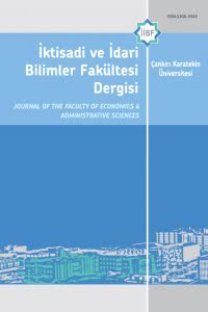Lübnan’da Toplumlararası Gergin İlişkiler
The Uneasy Inter-communal Relations in Lebanon
Middle East, Lebanon, Identity Diversity.,
- ISSN: 1308-5549
- Başlangıç: 2011
- Yayıncı: Çankırı Karatekin Üniversitesi
Bir Devlet Hastanesinde Hemşirelerde Örgütsel Sessizlik Üzerine Bir Araştırma
Gülsün ERİGÜÇ, Özlem ÖZER, Cuma SONĞUR, İlkay Sevinç TURAÇ
Monte Carlo Simülasyonu ile Beklenmeyen Operasyonel Kayıpların Tahmini
Suriye Krizi ve Ürdün’e Yansımaları
Finansal Sektörde Gelişim, Ekonomik Büyüme, Yoksulluk Oranın Düşürülmesi: Nijerya Örneği
Tasarruf ve Kredi Şirketlerinde Performans Değerlendirmesi Analizi: Kumasi Metropolü Örneği
Dadson AWUNYO-VITOR, Margaret Aba Sam HAGAN, Patrick APPIAH
Lübnan’da Toplumlararası Gergin İlişkiler
Madencilik Faaliyetlerinin Çevresel Etkilerini Değerleme Yöntemleri
Yenilenebilir Enerji ile Kanıtlanmış Petrol Rezervleri Arasındaki İlişki: OPEC’den Bulgular
Reel Efektif Döviz Kurları ve Hayat Standardı: Demokratik Kongo Cumhuriyeti Örneği
Andre Makutubu BALIBWANABO, Lakhdar ADOUKA, Yahia BOUCHETA
Türkiye’de Çocuk Koruma Sistemi ve Koruyucu Aile Bakım Yönteminde Yeni Yaklaşımlar
